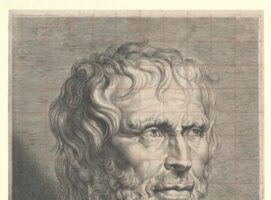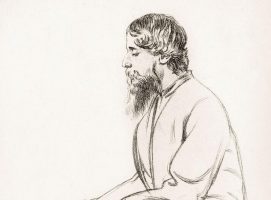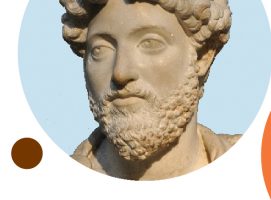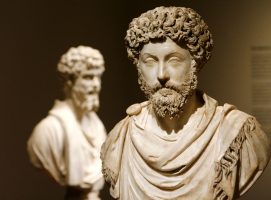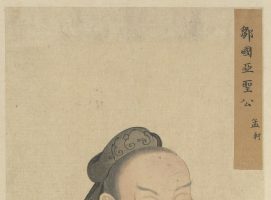Showing 59 articles
Building Values of the Olympic Spirit
Author: Shruti ChopraOctober 1, 2024
Some of us from New Acropolis (India North), along with 17 other countries came together to take part in the 8-day long, Philosophical-Sports Pre-Season event in Greece. But what is a Pre-Season about? How does New Acropolis, a School of Philosophy connect with the School of Sports? What does it mean to be a Philosopher-Athlete [...]Smart Slavery
Author: Antonin VinklerMay 2, 2024
Thanks to the benevolent faith there are over a hundred letters preserved from my favorite philosopher – Lucius Annaeus Seneca, in which he is mentoring his younger friend Lucilius. In one of those letters (No 27) Seneca mentions Calvisius Sabinus – a rich fellow, who wanted to become a memorable part of the society of [...]On Marsilio Ficino’s Magic
Author: Agostino DominiciJanuary 21, 2024
Marsilio Ficino was a prominent figure in the Italian Renaissance, making significant contributions to the study and revival of Magic. His magical teachings were an amalgamation of Neoplatonism, Hermeticism, and Christian thought. Before delving into Ficino’s magical doctrines, it is essential to explore some of the key themes underlying Renaissance magic. – Religious and Cultural [...]The Science of Tomorrow: An Alliance of Reason and Spirituality
Author: Jean StauneSeptember 8, 2023
In view of what is happening today, it is possible that science may hold a less important place in the culture of tomorrow. Why? Because when science is called upon to express its view on certain subjects, it often adopts an excessively authoritarian tone. This uncompromising approach has discredited it in the eyes of public [...]In Praise of Folly and Other Teachings of Erasmus
Author: Istvan OrbanSeptember 8, 2023
“We live in times when to speak endangers the body, but to remain silent endangers the soul” – Erasmus of Rotterdam Nowadays, Erasmus comes to our mind when we hear about the student exchange program of the European Union. The educational program was named after a Dutch Renaissance philosopher, Desiderius Erasmus, who was a great [...]Unselfing and the Pursuit of Perfection
Author: Nataliya PetlevychMay 11, 2023
The Unique Contribution of Iris Murdoch to Moral Philosophy in the 20th Century English philosophy has been generally characterized as empirical and anti-metaphysical. However, the 20th century was marked by a diversity in ideas and approaches, which had the effect of enriching philosophical discourse. A unique place in this development belongs to Iris Murdoch. She [...]Giordano Bruno: Some Life Lessons
Author: Ambuj DixitJanuary 10, 2023
“And how many years can some people exist Before they’re allowed to be free? Yes, and how many times can a man turn his head And pretend that he just doesn’t see? How many times must a man look up Before he can see the sky?” These lines from Bob Dylan’s song – Blowing in [...]The Theory of Platonic Forms and the Most Beautiful
Author: Miha KosirJuly 6, 2022
The theory of Forms or Ideas is a piece of a larger puzzle that can help us to understand how we have come from singularity to multiplicity, yet still retain a connection with the One, how this world is created and ultimately what is reality. To truly understand one piece of a puzzle we have [...]Gitanjali by Tagore: An Investigation
Author: Prof. Ananda LalJune 27, 2022
On 29th March 2021, The New Acropolis Culture Circle conducted an online session on Rabindranath Tagore’s Nobel Prize-winning work Gitanjali, with Prof. Ananda Lal. An authority on Tagore, he retired as Professor of English, Jadavpur University, Kolkata, and directs Writers Workshop, the oldest continuing publisher of Indian poetry in English. The professor’s doctoral thesis had [...]Living Philosophy: How Words of Plato and Marcus Aurelius are Relevant Today
Author: Trishya ScrewvalaJanuary 3, 2022
First published in The Indian Express on 18th Nov 2021 As we begin to step out after almost two years of being largely confined to our homes, the occasion of World Philosophy Day today offers an opportunity to reflect on the challenges we faced, and the value and need of philosophy in these unprecedented times. [...]The Ancient Stoics Come to our Aid Today
Author: Delia Steinberg GuzmánDecember 13, 2021
As a result of the number of adverse situations we have to face, many health professionals are having to propose solutions to deal with the ever-increasing number of cases of uncontrolled and unmanageable emotions, depressions or, on a smaller scale, states of anxiety. It is interesting that this has led us to turn to the [...]The Philosophy of Benevolence
Author: Julian ScottMay 12, 2021
I am referring with this title to the life and work of a Chinese philosopher called Mengzi, or Mencius, as the latinized version of his name is written. Born in Zou province around 371 BC, he lived in a period known as ‘The Warring States’, which lasted from 481 to 221 BC. It was probably [...]
